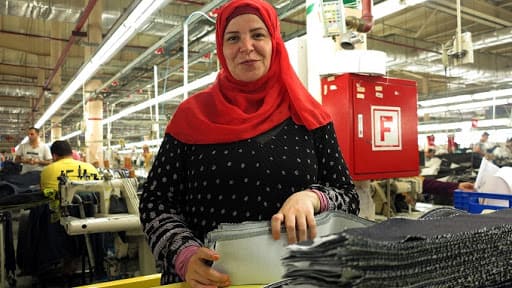Project (1): Switch Med Programme (Road Map for scaling up Resource Efficiency)
Donor: funded by The European Union & UNIDO
Duration: 3 Years
Description:
– The project aims at increasing the competitiveness of the national industries while preserving natural resources.
– It is building also on past experience through a large number of successive programs from 1994 till now (SEAM, FACE, EPAP, PSI, PPSI, ENCPC).
– The Roadmap is also building on the existing Egyptian legal framework which consists of environmental laws and regulations issued by a number of ministries: Environment, Industry, Planning, Labor, Irrigation, Housing and Interior.
Project (2): From cotton seeds to clothing: Enhancing the sustainability, inclusiveness and value addition of the cotton value chain in Egypt
Donor: UNIDO
Duration: 2 Years
Description:
– The project aims at enhancing the sustainability, inclusiveness and value addition of the long-staple and extra-long staple Egyptian cotton value chain, by improving the economic, social and environmental performance of cotton growers and cotton processors, and strengthening support institutions.
– The project capitalized UNIDO well-established expertise on the value chain approach in Egypt and focus on the promotion of organic and noncontaminated cotton and local value addition (local content and processing), support resource-efficient cotton processing, foster B2B linkages in the textile value chain, promote scientific research in the field of cotton, improve its quality, foster innovation in the textile sector, enhance the technical and entrepreneurial skills of Egyptian young women and men.

Project (3): G-TEX Project
Donor: It is co-financed by the Swiss Government under the Global Textiles and Clothing
Programme (GTEX) as well as by the Swedish Government within the framework of the Middle East and North Africa Region Textiles Programme (MENATEX). Duration: The project will run until the end of December 2021.
Description:
– Through increased exports, the project will contribute to job creation in the textile and clothing sector. This objective will be achieved by improving the performance and services of the sector’s trade and investment support institutions, and by improving the competitiveness of small and medium-sized enterprises (SMEs).
– The project assists 35 small and medium-sized businesses operating in subsectors such as e.g. denim, knitwear, sport and leisurewear as well as men’s shirts in addition to providing advice of improving dyeing &finishing operations for fabrics.
– Participating companies will be able to increase their international competitiveness and diversify their exports.
This will be achieved through:
– Training, coaching and mentoring in value-added areas such as input supply, product and design development, export marketing and branding
– Improved business compliance with social and environmental standards required by buyers; especially with regard to the EU market
– Connecting companies to new markets and potentially new buyers;
– Connecting companies to financing mechanisms that will provide trade finance to enable them to move to co-contracting and the finished products.
Project (4): CBI Project
Project Name: Project information CBI value chain analyses Apparel and Home textiles in Egypt + Societal Cost Benefit Analysis (SCBA)
Donor: funded by the Netherlands Ministry of Foreign Affairs.
Duration: Starting Med 2020
Description:
– The mission of CBI is to connect Small and Medium-Sized Enterprises (SMEs) in developing countries to the European market and thereby contribute to sustainable and inclusive economic growth.
– CBI does so by implementing
– 3-5 year projects in a specific export value chain (VC) in a specific county, focusing on seizing opportunities for exports to Europe and tackling obstacles that hamper or hinder these exports.
– CBI
– projects are integrated, meaning they involve both SME exporters and the export enabling environment.
– CBI carries out four value chain analyses in Egypt, in the following sectors: IT Outsourcing, Tourism, Apparel and Home Textiles.


























